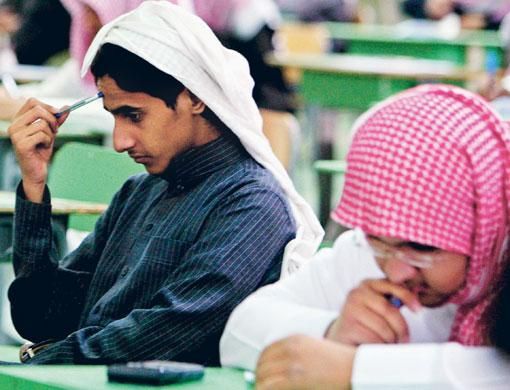Dubai: Nora Al Fayez is very much aware that she is opening doors for many other women in Saudi Arabia.
The first woman to be named deputy education minister for women's affairs - the highest position reached by a female in the conservative country - Nora can't believe that her dream has come true.
"Never ever, I was not expecting it to happen," she said of her appointment.
In an exclusive interview with Gulf News from Riyadh, Nora said she was expecting one of the "wonderful females" and "distinguished women" in the country to be appointed to a high position, but "I was not expecting, at all, that I will be that woman, and in that position."
Actually, she was.
She recalled the "very very happy" feelings she sensed after receiving a call from "people" in the Royal Court telling her she was chosen to the high position, almost two days before the official announcement of the cabinet reshuffle on February 14.
Euphoria and pride prevailed among all her family members of the woman whom they called "mayor" of the family because she is the eldest child and because of their total trust in her and her opinions.
Moreover, some years back, Nora helped one of her brothers to cling to life. He was suffering from leukaemia, and medical tests showed that she was the only relative who could donate bone-marrow to save his life.
"I was thrilled to be the one to save his life. He is doing fine now, thank God," she said.
Apart from being a daughter, mother and wife, Nora is also looked at by her colleagues as an ambitious leader. Her appointment was hailed and received a considerable media coverage.
"She has a strong personality," Hanan Al Ahmadi, associate professor of health administration and Nora's former colleague, told Gulf News. "Surly, she is qualified to fill that post, and the position needs somebody like her."
Also, "the education sector itself needs development", Hanan, who worked under the leadership of Nora at the Saudi Institute of Public Administration, said.
Nora joined the Institute in 1993, after administrating private schools and working in the education ministry, specialising in women's education.
The 52-year-old graduated in sociology from King Saud University in 1978 and earned a master's degree in education from Utah State University in the United States in 1982.
As for her new post, Nora has already defined her initial priorities.
"Going to the field," she said. "Seeing the reality and checking needs. Afterwards, the work priorities will be defined."
Many women activists and political scientists believed there was a need for the newly appointed Saudi ministers to open communication channels with the public and putting a timetable to achieving goals.
"For any leader to succeed, he or she needs to draw a timetable, define priorities and start implementation," Nora said.
Equally important, is the "work team" and the formation of "a team capable of carrying out the duties according to importance", she said.
However, Nora disagreed with the saying that "Saudi curriculum" are controversial and need a revision.
"Do you think whatever is being said is true?" she asked. "I am one of those who are stressing that there is nothing wrong with our curriculum. There could be a need to develop them."
The problem is not with the textbooks, "but rather with some of those who are outside the country, trying to find gaps in our society", she said.
Nora said she believed in "gradual" reforms, in response to a question on her opinion of reforms in Saudi Arabia. Many analysts believe the Saudi monarch, King Abdullah, is a reformer.
In Saudi Arabia, there is segregation between the two sexes in almost all aspects of public life: schools, universities, banks, businesses and restaurants.
Conservatives reacted positively to Nora's appointment, she said. Unlike the rest of Arab societies, Nora's pictures were not widely distributed to international media when she was appointed. A few Saudi newspapers published her pictures, but refrained after her objections.
"I didn't wish my pictures to be published without the hijab," she said explaining that apart from the hijab, which covers the head, she also wears the niqab, which covers the face.
"We are in a conservative society."









